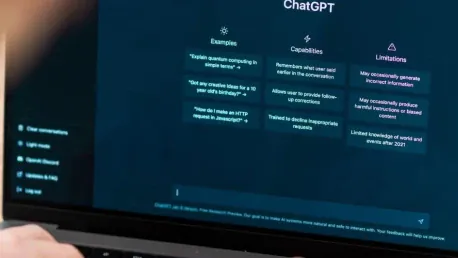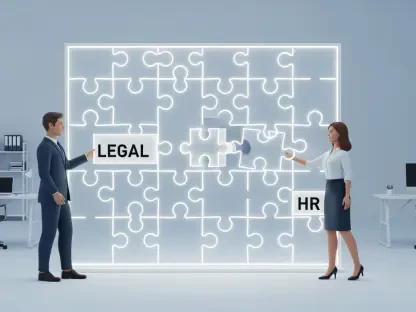The legal field is often seen as a bastion of tradition, but Buchanan Ingersoll & Rooney, a prominent Pittsburgh-based law firm, is challenging that perception by integrating generative AI technology into their operations. This progressive move marks a significant cultural shift for an industry typically known for its conservative approach to technology. In doing so, the firm aims to modernize its legal processes, enhance efficiency, and maintain the high standards of confidentiality and data security that are paramount in the legal profession.
The Genesis of Artifex: Innovation Meets Caution
The initiative to incorporate generative AI began back in 2022 when Chief Information Officer (CIO) Scott Angelo and IT Director Jeff Lagana started exploring OpenAI’s ChatGPT. They quickly realized the potential AI held for increasing productivity by automating repetitive tasks. However, they were equally aware of the critical need to address data security and confidentiality concerns inherent to AI tools. To navigate this, Angelo and Lagana spearheaded the development of “Artifex,” a specialized platform tailored to integrate AI safely into the firm’s legal operations.
They established an internal sandbox, creating a controlled environment that allowed attorneys to experiment with AI without the risk of data breaches or operational disruptions. This sandbox environment was crucial for Buchanan’s staff to understand AI’s capabilities and limitations better. By fostering a space for innovation and learning, the team was able to harness the full potential of generative AI while maintaining the integrity and security required in the legal sector. This thoughtful approach underscores the careful balance Buchanan is striving to achieve between technological advancement and traditional legal practice.
Transformative Capabilities: From Basic Tool to Essential Platform
Artifex’s evolution is noteworthy. What began as a basic AI tool has grown into a sophisticated platform now used by over 30% of Buchanan’s 450 employees, spanning various roles from junior associates to senior management. The platform’s ability to perform time-consuming tasks, such as reviewing extensive documents and extracting key information, has proven invaluable. For example, Artifex can swiftly summarize hundreds of pages of regulatory updates, helping attorneys quickly grasp essential points.
Attorneys have also discovered innovative applications for Artifex, such as comparing multiple contract versions to flag key differences and potential legal issues, significantly streamlining their workflows. One attorney notably used Artifex to condense a 280-page regulatory document to a succinct 30-page summary within an hour, demonstrating the tool’s capability to enhance preparedness and response times. The platform continuously evolves to meet the firm’s needs, showcasing its adaptability and the forward-thinking mindset of the leadership team.
Establishing Best Practices: Collaborative Prompt Engineering
A significant milestone in Artifex’s development involved integrating prompt engineering. Buchanan’s team created workflows for sharing and refining prompts, establishing a repository of best practices. When the litigation team devised an effective method for summarizing depositions, this practice was shared firm-wide, enhancing overall efficiency. These collaborative efforts ensured that successful prompt engineering strategies were uniformly applied across the firm, optimizing the platform’s performance.
By continuously refining and sharing these prompts, Buchanan maximized Artifex’s potential, reinforcing a culture of innovation and shared knowledge. This best-practices approach allows the firm’s attorneys to benefit from collective insights and methodologies, creating a more cohesive and efficient legal practice. As the platform grows, the collaborative nature of its development ensures that it remains relevant and effective in addressing the diverse needs of the firm’s practice areas.
Addressing Data Security: Safeguards and Zero Data Retention Policy
Data security remains a paramount concern, especially in the legal field where confidentiality is critical. While large public language models like ChatGPT often fail to offer robust data protection, Buchanan’s team built Artifex around ChatGPT’s core model due to its comprehensive data management features and Zero Data Retention (ZDR) policy. This policy ensures that no data submitted to the system is stored or used for further training. Despite past controversies regarding data use by ChatGPT, Buchanan integrated additional safeguards into Artifex.
These safeguards include logging conversations, blocking sensitive data input, and content validation to prevent inaccuracies. A vital feature includes flagging potentially sensitive information, such as social security numbers, ensuring it remains secure. By incorporating these stringent security measures, Buchanan has addressed one of the most significant barriers to adopting generative AI in legal practice, setting a precedent for responsible and secure AI integration. This focus on security underscores the firm’s commitment to upholding the highest standards of confidentiality and trust with their clients.
Envisioning Future Expansion: From Internal Use to Market Offering
The legal industry is often viewed as a stronghold of tradition, but Buchanan Ingersoll & Rooney, a notable law firm based in Pittsburgh, is defying this stereotype by incorporating generative AI technology into their operations. This innovative step represents a notable cultural shift for an industry typically characterized by its conservative stance on technology. The firm’s initiative is designed to bring their legal practices into the 21st century, significantly improving efficiency while upholding the rigorous standards of confidentiality and data protection that the legal profession demands. By embracing cutting-edge AI technology, Buchanan Ingersoll & Rooney aims to streamline their workflows and reduce the time spent on routine tasks, ultimately providing more value to their clients. This progressive move is not just about adopting new tools but also about fostering a culture of innovation and adaptability within the firm. By doing so, they hope to set a precedent for other law firms, demonstrating that even in a field as traditional as law, there is room for modernization and technological advancement.









